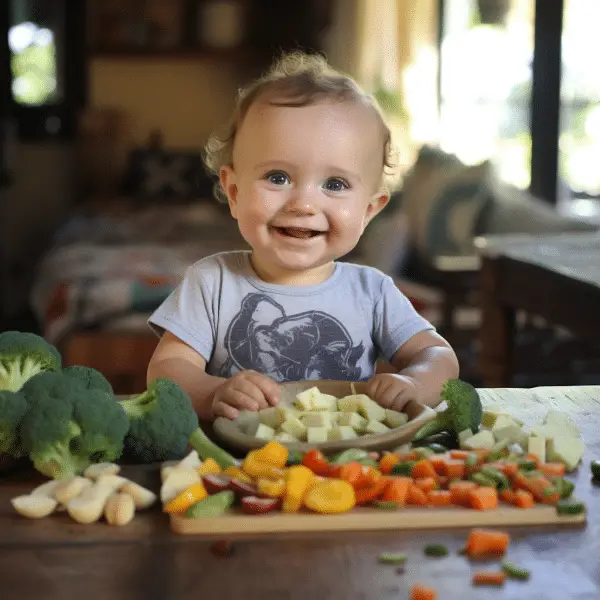Maternal Nutrition: Impact on Unborn Baby’s Development
Maternal nutrition and fetal development: Most women agree that being pregnant comes with consistent changes in eating habits. Pregnant women usually tend to eat more than usual, although some can’t stomach anything. Others have strange and peculiar food combinations that only they can enjoy.
All the same, pregnancy is a special time for the mother and the baby. The baby’s source of nutrition comes from the mother through the umbilical cord. And whatever the mother eats, the nutrients are channeled to the baby through the umbilical cord. But what if the mother doesn’t eat? Will the baby become hungry? Do babies get hungry in the womb? Stay tuned!

Do Babies Get Hungry In The Womb?
No, babies don’t get hungry in the womb. That’s so because there is an ever-ready, indestructible nutrient supply chain from the mother to the unborn baby via the umbilical cord. This is irrespective of whether the mother has eaten or not. So, your unborn baby cannot get hungry in the womb because they get all they need from you anytime.
`What happens to the nutrient supply if you’ve not eaten? Nature will always prioritize the baby. If you’ve not eaten, there’ll be no readily available nutrients. And the nutrients your baby needs to survive and thrive will be derived from your body. This leads to increased nutrient demands which you need to meet through proper nutrition.
How significant is your nutrient intake to the well-being of your unborn child? Let’s dig deeper.
Importance Of Proper Maternal Nutrition To The Baby
Here’s how having a good diet during pregnancy affects your unborn baby’s well-being:
Proper Growth And Development
A mom’s diet significantly affects her child’s physiological growth and development before delivery. Foods rich in protein are Maternal nutrition and fetal development responsible for the healthy growth and development of the baby’s tissues, organs, and brain.
Experts recommend pregnant women consume more protein. Doing so ensures an increase in blood supply from the mother to the fetus through the umbilical cord. Protein intake should be increased each trimester to cater to rapid growth.
According to experts, consuming around 70 to 100 grams daily is sufficient for adequately developing the baby’s organs and tissues during pregnancy. You can increase your protein intake by consuming protein-rich foods like beef, chicken, salmon, pork, fish, and beans.
Development Of Strong Bones, Teeth, And Muscles
There’s enough evidence suggesting the significance of calcium in the healthy development of a child’s bones, muscles, teeth, and nerves. Calcium is crucial not only during pregnancy but even after delivery and all the way to the teenage years.
Pregnant women should consume at least 1000 mg of calcium daily. This is even more crucial in the third trimester, where there’s heightened bone development.
Insufficient calcium intake by pregnant women puts them at risk of weak and brittle bones. This may lead to fragile bone disorders like osteoporosis, osteopenia, or osteomalacia. The last thing you’d want as a pregnant woman is weak bones resulting from poor calcium intake. So, consider consuming calcium-rich foods like milk, sardines, cheese, yoghurt, and low-mercury fish.
Prevents Congenital Disability
Babies are guaranteed a steady nutrient supply from their mothers. However, mothers should be wary of their diets. What happens if a pregnant mother is deficient in essential nutrients needed by the baby? Will the baby become deficient too?
Pregnant women deficient in essential nutrients put their babies at risk of the same deficiencies. And some nutrients deficiency can have severe consequences like congenital disabilities.
For instance, folic acid plays a crucial role in healthy nervous system development, and its deficiency can lead to neural tubal defects like spina bifida and anencephaly. Anencephaly is a critical medical condition where the baby is born without some parts o the skull or brain.
For this reason, pregnant women should consume sufficient folic acid to prevent these conditions. Consuming 600 to 800 mcg of folic acid daily from folic acid-rich foods is advisable. Such foods include nuts, eggs, meat, peanuts, etc.
Boost The Immune System
A weak oxygen flow from the mother to the baby can be life-threatening to the fetus at every pregnancy stage. Foods packed with iron, sodium, and potassium play a critical role in the oxygen flow to the fetus during pregnancy.
Pregnant mothers are urged to consume iron and vitamin-rich foods for a steady oxygen flow to the baby. Besides enhancing a healthy oxygen supply, iron, sodium, potassium, and vitamin-rich foods help boost the mother’s and baby’s immune systems.
Aim for 27 mcg of iron daily for appropriate oxygen inflow to the baby.
How Do Babies Get Food In The Womb
As babies grow in the womb, they gradually form everything needed to survive life outside their mother, from the heartbeat to the digestive system. The fetus is attached to the mother through the umbilical cord. And this is where the fetus gets all the essential nutrients needed for proper growth.
Most pregnant mothers think their fetuses kick like crazy when they’ve not eaten because of hunger. However, that’s hardly the truth. Babies usually kick a lot when the mother has not eaten because of a drop in blood sugar, not hunger. When you’ve not eaten, your body’s blood sugar drop, leading to less energy. Your fetus will kick more in response to the low energy levels.
After meals, babies kick a lot too. That’s because they are happy and experience increased energy, blood sugar, and nutrients. The increased energy makes your little one kick and moves around a lot. That’s their reaction to suddenly having more sugars. This is the same for pregnant women who eat lots of sweets.

Conclusion
Maternal nutrition and fetal development Do babies get hungry in the womb? No, babies don’t get hungry in the womb because they have a constant supply of nutrients from the mother, whether she has eaten or not.
However, the problem comes when the mother herself is deficient in essential nutrients. This can lead to deficiency in the fetus. And that’s why a malnourished pregnant mother usually gives birth to a malnourished child.






